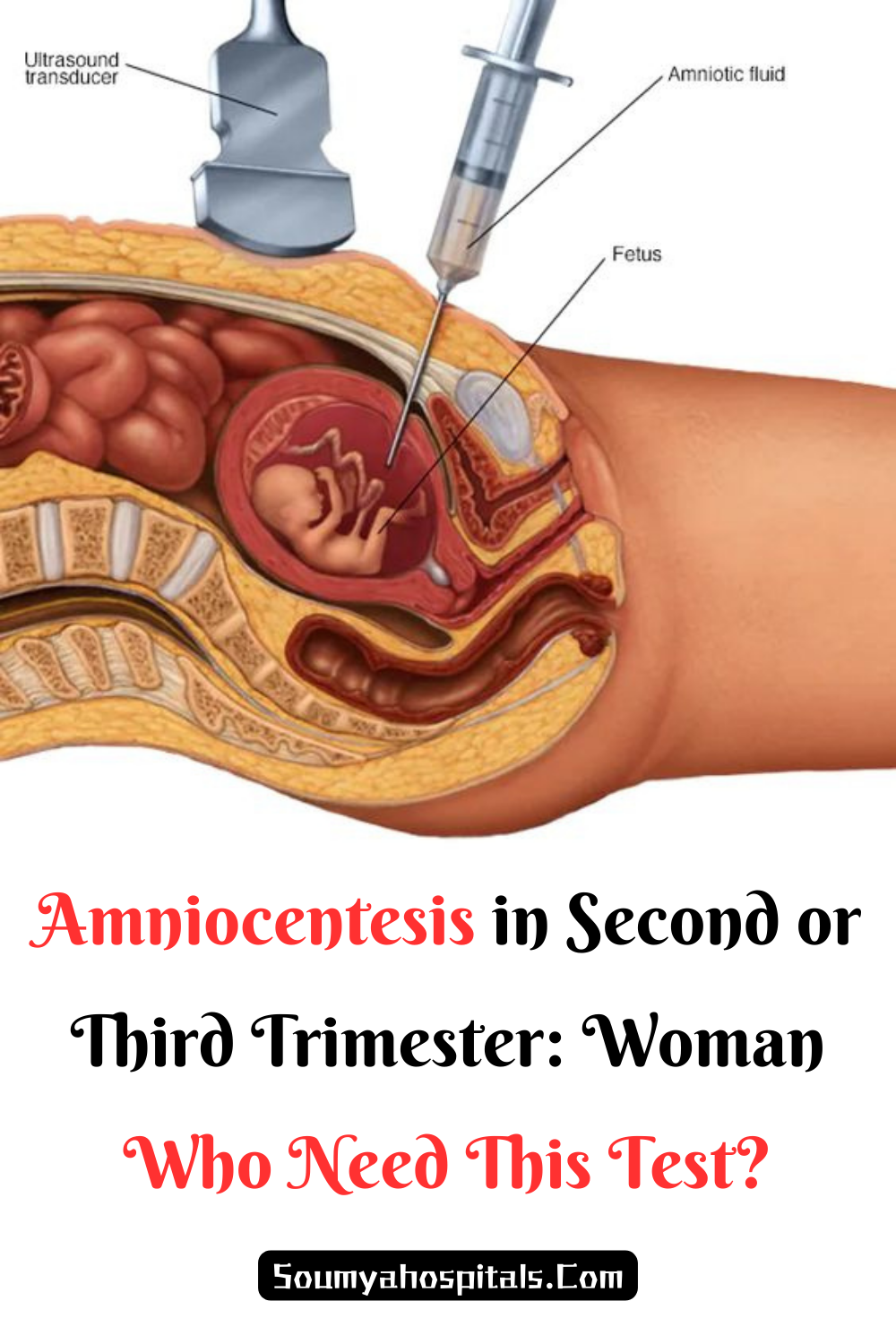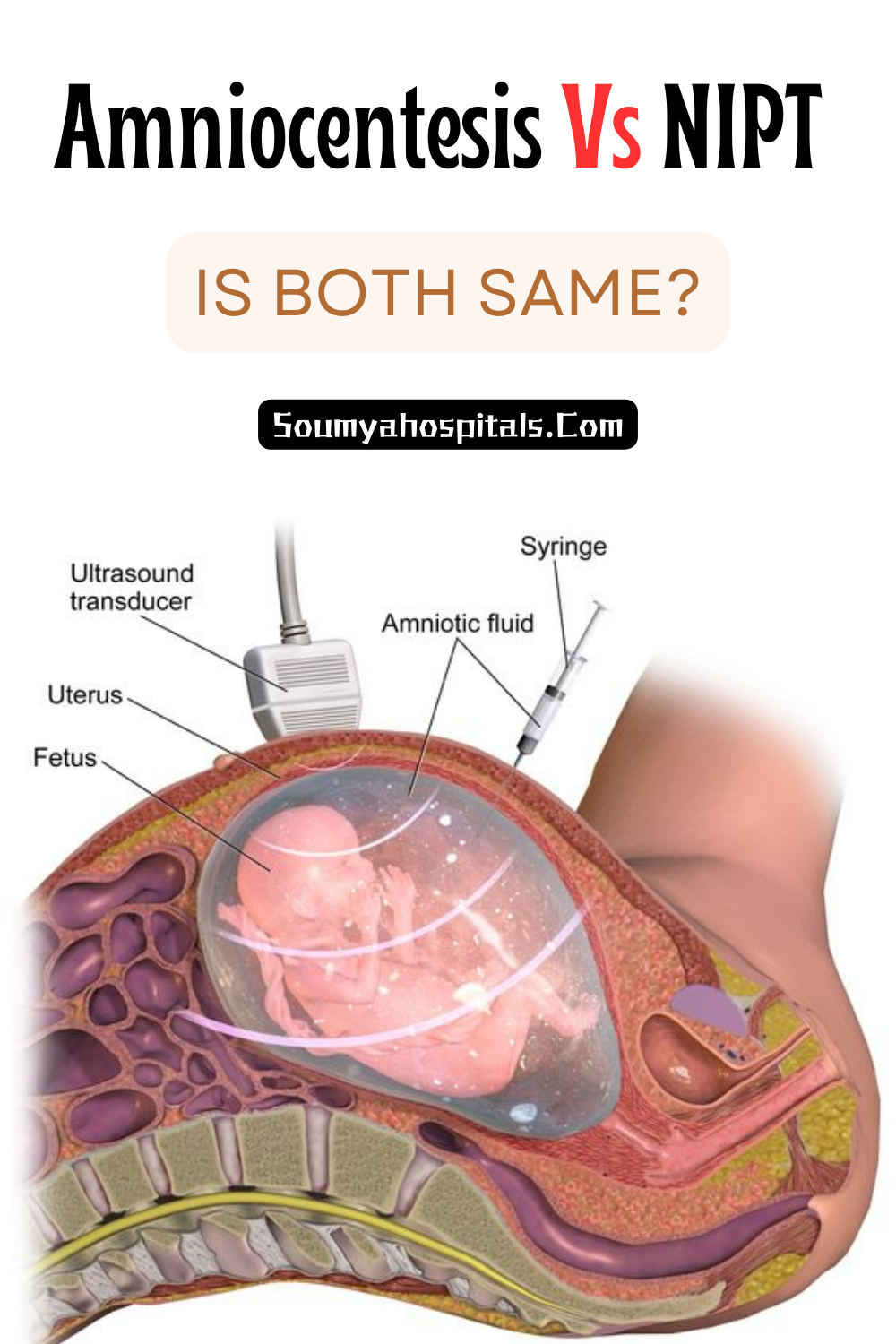Important Tests during pregnancy help check the baby's growth and health, as well as the mother's well-being.
Amniocentesis Test: Every Pregnant Woman may know that their baby is surrounded by the amniotic fluid and even everyone woman knows that. Even you, Right?
Many of you may dont know the technical name of amniotic fluid but you already heard about water break (Amniotic fluid looks like water) in pregnant women. Now you may understand.
Also Check: How To Read A Fetal Monitor In Labor
Amniocentesis is the prenatal test that will be done during pregnancy if there are any birth defects in your baby.
And this second-trimester test will be done by taking this amniotic fluid. Not getting any picture of what is amniocentesis? Do check out the article completely, and know the information about Amniocentesis, like for who, when, & why this test will be made in the second trimester.
- What is the Amniocentesis Test? What are the Problems That Will Be Detected?
- Amniocentesis in Second or Third Trimester: Woman Who Need This Test? | Purpose of Amniocentesis
- Amniocentesis Test Procedure During Second Trimester in Pregnancy
- Complications or Risk of Amniocentesis
- Amniocentesis Test Results In Pregnancy
- Amniocentesis VS CVS | Alternative Test For Amnio
- Amniocentesis Vs NIPT - Is Both Same?
- Why there is a risk of miscarriage in the Amniocentesis test?
- Can the Amniocentesis Test Cause Autism in Baby?
- What are the safety measure I need to Take after Amnio Test?
- Is the Amniocentesis test 100% accurate?
- How much does an Amniocentesis Test Cost?
What is the Amniocentesis Test? What are the Problems That Will Be Detected?
If your baby has any birth defects that were found in the Ultrasound or any other test, then your healthcare provider may recommend this test to you. But do you know what is amniocentesis test?
Amniocentesis is a prenatal test that will be done by taking the amniotic fluid from your body. And this test will be done mostly in the second trimester, if not in the third trimester based on the person and their symptoms.
In this test, you can know whether you have been diagnosed with Down Syndrome, Genetic disorders like Cystic fibrosis, Fragile X syndrome & also Neural Tube defects. Not only these but sometimes this test is also needed to diagnose infection, whether the baby's lungs are developed or not & to remove the excess amniotic fluid from the sac.
This test will be done by removing some amniotic fluid from your sac using a needle where you will find some of your fetus cells. That will help to diagnose the defects easily.
Amniocentesis in Second or Third Trimester: Woman Who Need This Test? | Purpose of Amniocentesis

Amniocentesis tests will not be made as the other general pregnancy tests, as it is not needed for everyone. This is the test that will be done on the pregnant woman who has a high chance of risk like birth defects. Some of them women include,
- An amniocentesis test will be done for the woman who got conceived at the age of 35 to 40 years.
- If the pregnant woman's screening test shows there is a defect in the fetus.
- This test will also be done on the woman who had a child with a defect.
- If the pregnant woman has any history of genetic disorders, then also this is needed.
Amniocentesis Test Procedure During Second Trimester in Pregnancy
Most commonly, this amniocentesis test is performed during 15 - 20 weeks(Second Trimester) in your pregnancy journey. And this test is only needed for the people who had risks in their pregnancy.
Many of you may have many questions in your mind like how amniocentesis test is done, is amniocentesis painful or painless. So let us look at how the amniocentesis Test is done.
- At first, your belly will be cleaned by the health care staff. Then your healthcare provider will check the place of your baby in the fetus using the Ultrasound scan.
- Then you will be given an injection for pain relief which is nothing but anesthesia to be painless.
- This numbing medicine can be given through injection or it will be rubbed on your body.
- Under the guidance of Ultrasound, your healthcare provider will insert a needle that will be long through your belly into the womb and through that into your sac.
- With that needle, they will take a small amount of Amniotic fluid and send it to the lab.
- The overall procedure of this test may take up to 30 minutes.
Making this test is completely your decision, you can discuss it with your partner and can take this test only if needed. If you're having twins in your sac, then it should be done twice, and it will be more tricky.
After taking this test, taking a rest for a couple of days will be good for the pregnant woman.

Complications or Risk of Amniocentesis
When your doctor suggests this test and if you are thinking of having this test, before taking the test itself prepare yourself by knowing the Amniocentesis risks and complications that you will be facing after the test.
And these risks will be seen in women which are rare but immediately after the test. Even though it is safe, there is a chance of risks that are given below.
- You may feel some infections like fever, after the test, at that time you need to consult the doctor immediately.
- Discomfort or severe cramping after your anesthesia gets to normal.
- Even you may face amniotic leakage from the vagina which leads to immediate delivery. Sometimes that fluid may stop within two days.
- Abortion can also happen but till now it has been seen in one percent of pregnant women.
- If the mother is RH negative, sometimes, babies blood cells may enter into the mother's bloodstream.
- There are some cases, the needle may cause injury to the baby.
Not only those, even if you see symptoms like redness over the belly where the needle is injected, or feel the change in the baby's movement, consult your midwife immediately.
Amniocentesis Test Results In Pregnancy
The amniotic test gives 99% accurate results in detecting the abnormalities. The test results will be available within 2 to 3 weeks.
And there will be normal and abnormal results. We will look at both test results and see what they mean.
Normal Amniocentesis Test Results / Amniocentesis Test Result Negative
If you get normal amniocentesis test results, then you may have peace of mind as your baby is normal. It means your baby has no genetic /Chromosomal abnormalities.
Alpha-fetoprotein and bilirubin levels are also normal, and there is no infection found in the fetus.
Abnormal Amniocentesis Test Results / Positive Amniocentesis Test Results
When your baby has any chromosomal abnormalities or has an infection in the fetus then you will get positive amniocentesis test results and it means you have an abnormal fetus.
You may also have genetic disorders like Down syndrome, Tay-Sachs disease, Cystic fibrosis, Neural Tube defects, and RH disease.
You need to go and consult your midwife, doctor, or health care provider for the next process and the tests.
Amniocentesis VS CVS | Alternative Test For Amnio
When you are in a dilemma about this amnio test, even you can go for another alternative test. If you are a pregnant woman who is in the early stage of your pregnancy, it might be helpful to you.
If you have the symptoms that were given above, it is better to go for the CVS (Chorionic Villus Sampling) test. Even this test defects you about the child's defects or abnormalities that baby have.
But as it will be done in a very early stage, it cannot detect the neural tube defects of your baby.
Amniocentesis Vs NIPT - Is Both Same?

Amniocentesis and NIPT (Non Invasive Prenatal Test) both are different but look like same. The difference between these two tests is NIPT tells you about the chances that you have that your baby will born with child defects or chromosomal abnormalities.
Whereas, Amniocentesis detects whether your baby has any defects or not.
FAQs on Pregnancy Amniocentesis Test
1. Why there is a risk of miscarriage in the Amniocentesis test?
While doing this second-trimester test, if the needle causes any damage to the amniotic sac or amniotic membranes, then there will be a chance of losing amniotic fluid or causing infection which leads to miscarriage.
But there are very less chances for this and uncommon.
2. Can the Amniocentesis Test Cause Autism in Baby?
No, there are no such types of things happened because of this test. Even there is no such type of study.
3. What are the safety measure I need to Take after Amnio Test?
Once after complete the test, you can go home and take the rest for a couple of days. Also do not have sex, and do not exercise. Also, do not lift the heavyweights.
4. Is the Amniocentesis test 100% accurate?
The amniocentesis test is most accurate to 100% which is 99 or 99.4%. And there is 1 in 300 or 500 women has a miscarriage after the test.
5. How much does an Amniocentesis Test Cost?
When it comes to the amniocentesis cost, it will be based on many factors mainly it is dependent on health insurance. Better talk to your insurance provider before going to take this test.
Conclusion
As we have seen above, the Amniocentesis Test During Pregnancy is done for several reasons. Remember that no doctor will suggest you for this test unless you have higher odds of genetic diseases or defects of your child's background.
Even though, do not take risks and take different opinions of doctors if you know. Read the information carefully and discuss with your midwife about the doubts you have.
For more info and other test information like down syndrome test, check out the Soumyahospitals.com website.
Read More Posts:
